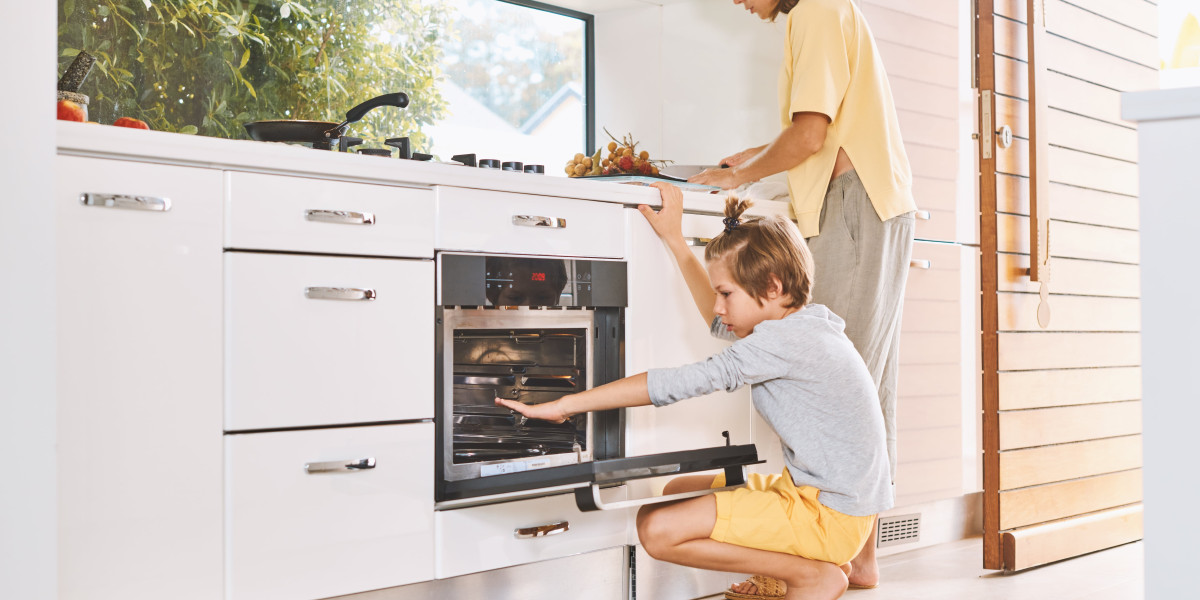Fitted Ovens and Hobs: An In-Depth Guide to Modern Cooking Appliances
Fitted ovens and hobs have actually ended up being a staple in modern-day kitchens, integrating performance, aesthetic appeals, and innovative innovation. These kitchen appliances are developed to flawlessly integrate into kitchen surface areas, offering the culinary lover with the tools required for effective meal preparation while preserving a smooth and organized appearance. In this post, we will check out the various kinds of fitted ovens and hobs, their advantages, aspects to consider when selecting them, and answers to frequently asked questions.
Understanding Fitted Ovens and Hobs
Fitted ovens and hobs are appliances specifically created to be built into kitchen cabinetry or counter tops for a seamless appearance. They can vary considerably in style, size, functionality, and features, which cater to varied cooking requirements and kitchen styles.
Types of Fitted Ovens
- SIA AMZDO102 Black Built-In Double Oven - 60cm Ovens: These ovens are set up directly into a wall or kitchen unit and be available in numerous configurations and sizes.
- Double Ovens: A built-in version that includes 2 different oven compartments, enabling multiple meals to be prepared at differing temperature levels at the same time.
- Combination Ovens: These versatile appliances integrate conventional baking with microwave innovation.
- Steam Ovens: Ovens that utilize steam for cooking, maintaining wetness in food while enhancing tastes and nutrients.
- Single Ovens: A standard oven system that is the most typical type used in homes.
Types of Hobs
- Gas Hobs: These use gas burners for cooking, providing immediate heat and exact temperature control.
- Electric Hobs: Powered by electrical power, these hobs often include smooth surface areas that make them easy to tidy.
- Induction Hobs: Utilizing electromagnetic energy, induction hobs heat cookware directly rather than the hob surface area, making them energy effective and a safe alternative.
- Blended Hobs: These provide both gas and Cookology 72L Electric Oven - Multifunction & Convenient options, providing versatility for cooking designs.
Advantages of Fitted Ovens and Hobs
Fitted ovens and hobs provide numerous benefits that boost the cooking experience:
- Space Efficiency: Designed to suit cabinetry, fitted appliances take up less space compared to standalone models, creating a streamlined kitchen design.
- Aesthetic appeals: Fitted models frequently produce a more cohesive and visually attractive kitchen style.
- Personalization: Homeowners can choose from a variety of designs, surfaces, and features to match their kitchen decor and cooking requirements.
- Improved Functionality: Many contemporary fitted ovens and hobs boast innovative technology, such as smart controls, self-cleaning features, and exact temperature settings, which streamline cooking.
- Security Features: Many hobs, especially induction models, have safety functions such as vehicle shut-off and kid locks, promoting a more secure cooking environment.
Factors to Consider When Choosing Fitted Ovens and Hobs
When picking fitted appliances for a kitchen, a number of elements ought to be thought about to ensure the right option:
- Cooking Style: Different appliances cater to different cooking routines. Home cooks should examine their common meal preparation methods to discover appropriate appliances.
- Area and Layout: Measure the readily available space in the kitchen to guarantee that the picked appliances fit neatly without preventing movement.
- Energy Efficiency: Choose appliances with energy-efficient ratings to decrease utility expenses and environmental impact.
- Innovation and Features: Consider the desired functions, such as clever innovation, self-cleaning modes, or particular cooking functions like steam or convection cooking.
- Spending plan: Determine a budget before making choices to make sure that the picked models align with financial planning.
Table: Comparison of Different Types of Ovens and Hobs
| Home appliance Type | Pros | Cons |
|---|---|---|
| Built-in Ovens | Space-saving, customizable design | Installation expense can be high |
| Double Ovens | Cook several meals at various temps | Uses up more area |
| Steam Ovens | Healthy cooking, keeps nutrients | Generally greater cost |
| Gas Hobs | Quick heat control, preferred by chefs | Requires a gas line installation |
| Induction Hobs | Fast cooking, energy-efficient, safe | Needs suitable pots and pans |
| Cookology 72L Electric Oven & Microwave Combo Hobs | Easy to clean up, stable cooking temperature levels | Heating times can be slower |
Often Asked Questions (FAQs)
1. What is the distinction in between a built-in oven and a freestanding oven?
A built-in oven is integrated into kitchen cabinets for a smooth look, while a freestanding oven stands alone and is frequently more visible and accessible.

2. Are induction hobs safe to utilize?
Yes, induction hobs are thought about safe as they just produce heat when suitable cookware is put on them, decreasing the risk of burns.
3. Can I set up a fitted oven myself?
While some people may select to set up fitted ovens themselves, it is normally recommended to work with an expert to make sure right setup and adherence to security requirements.

4. What size of oven is ideal for a small kitchen?
In small kitchen areas, think about compact or single built in range oven-in ovens that fit within the available space without compromising on cooking performance.
5. Do fitted ovens and hobs need unique maintenance?
Fitted appliances need standard upkeep, such as cleansing and regular checks. Nevertheless, particular upkeep jobs depend on the kind of oven or hob.
In conclusion, fitted ovens and hobs represent the epitome of modern-day kitchen style and functionality. By understanding their types, advantages, and considerations, customers can make educated choices that improve their cooking experiences while fitting effortlessly into their home. Whether creating premium meals or preparing family suppers, fitted ovens and hobs are important tools in any culinary space.



